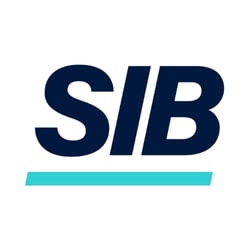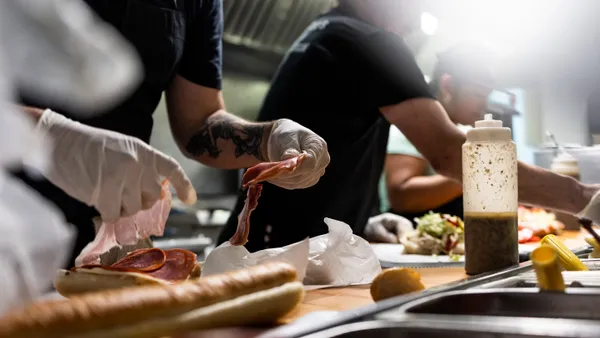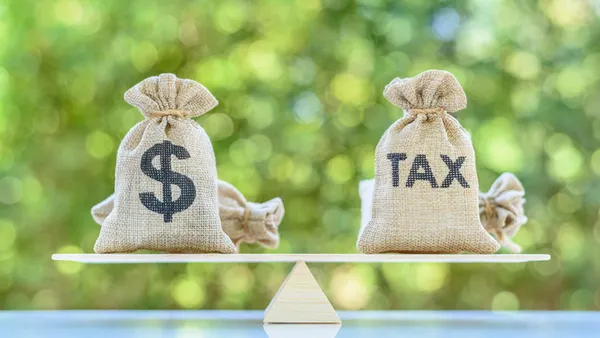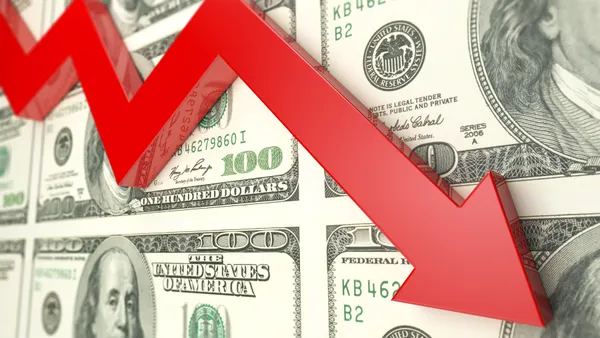Dive Brief:
- Restaurants and retail, hard-hit by mandated social distancing to stem the novel coronavirus outbreak, could see a 50% reduction in business in the next eight weeks and a 20% reduction in top line performance for the year, an analysis by S&P Global finds.
- Casual dining is expected to be the hardest-hit restaurant type, because it doesn't get the volume of drive-up traffic quick service restaurants get, the analysis says.
- "While casual diners may see an uptick in takeout orders, we expect demand to fall significantly and extend a weak traffic trend the industry has experienced over the last couple of years," the analysis said.
Dive Insight:
S&P says it will likely downgrade the credit ratings of businesses operating in the restaurant and retail sectors, both of which are being hit by stay-at-home mandates.
"We expect most rating actions to reflect the heightened risk for issuers exposed to social activity and discretionary spending," it said. "This includes most restaurants and mall-based retailers. In the next weeks and months, our rating actions will likely reflect the broad uncertainty around the severity of the impact."
Even after the mandates lift, spending is likely to stay subdued as households retrench. "Consumers are likely to be cautious about discretionary spending, regardless of channel,” the analysis said. "We expect a return to normalcy to be gradual."
The slowdown in restaurant traffic will reverberate for the companies that service them. Sysco, the country's largest restaurant supply company and whose rating is already on the lower side of the investment scale, at BBB-, is facing a big hit.
"Sysco's revenues could drop by 50% due to restaurant closures and social distancing," the analysis said.
Some retail sees upswing
The outbreak has brought gains to some retail sectors: groceries and big-box stores like Wal-Mart, Costco and Target, which provide basic home goods in high demand during the outbreak, are seeing much higher spending, in many cases by multiples of their typical volume.
"We expect grocery to be a bright spot as consumers hunker down and stock up for an indefinite period of homebound life," the company said. "Basic household goods [are] selling out [with] massive traffic at grocery and big box stores."
S&P, whose ratings of creditworthiness impact the cost at which companies can borrow, says a six-week lockdown will result in a 50% loss of revenue for retail and restaurants over eight weeks.
If the lockdowns go longer than six weeks, many smaller companies, operating on thin margins, won’t recover without some kind of government support.
Even the massive stimulus bill working its way through Congress, which will provide direct payments to households and loans to small and large businesses, won’t do much to help these struggling companies.
"This is unlikely to soften the blow to retail and restaurants, at least in the short term," the analysis said.














